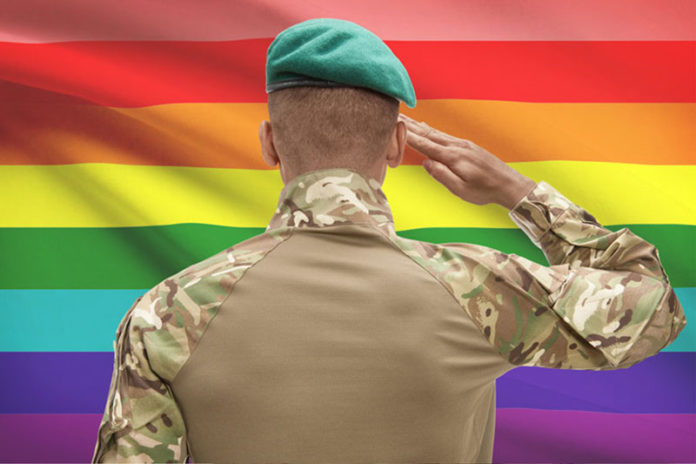
The famous transgender Army Private, formerly known as Bradley Manning, Chelsea Manning, took to Yahoo News to explain the reason he joined the military. Unsurprisingly, it had nothing to do with patriotism, or serving our great nation.
In 2013, Manning was found guilty of leaking thousands of confidential government documents to WikiLeaks during his tour of Iraq. The very day after he was sentenced to 35 year in prison for his crimes, Manning announced he was transgender – and would now go by “Chelsea,” using the pronoun “she.”
While incarcerated, Manning was given an expensive hormone treatment therapy at taxpayer expense, and subsequently became the first known soldier to receive transgender injections while in prison. Former president Barack Obama, mere days before leaving the White House, commuted Manning’s sentence and she was released in May this year, after serving out a mere seven years of her 35-year term.
In an op-ed for Yahoo!, Manning wrote that her ongoing battle with sexuality and transgenderism were actually the catalysts for joining the US Army.
Manning further admitted in her op-ed that enlisting in the Army was more about proving a point to other people and herself about masculinity rather than any kind of patriotism whatsoever.
“By the time I enrolled in the military at 20, I had spent years in denial about who I really was,” Manning wrote. “I was openly gay and would go through periods of cross-dressing, and had even thought about transitioning, but I was in such complete denial.
“To overcompensate — and because I was constantly being reminded of how inadequate I was as a male — I enrolled in the military,” Manning continued. “My thought was, ‘I must enlist and man up.’”
Manning was clearly not a good fit for the military, and felt personally insulted everywhere he went. Manning recalls, “The one place I never felt at all comfortable in the military was in private circles of conversation. There’s a tendency, especially among young men, to objectify and denigrate women behind closed doors. They’d say ridiculous, raunchy things about women — call them sluts and whores, basically just treat them like objects. It was a line I just couldn’t cross. I’d try to avoid those kinds of macho conversations, because that’s inevitably what would come up. I’d get very, very distant.”
Manning also wrote that she probably could have been more prosperous in the Army if she was given the liberty to be “out” and further argued against the idea that if she hadn’t been transgender, the WikiLeaks case would have never happened. This excuse was given to explain away the incredibly damage Manning did by leaking millions of vital US Intelligence secrets to enemy nations and rogue states.
“I loved my job and I took my military career very seriously. There’s this idea out there that, had I not been trans, the leaks and stuff would never have happened. But to my mind those are two completely separate things. Had I been out, I think I still would have been attracted to the military, but I would have been more comfortable and gotten along with people better. Being closeted often put me in situations where I couldn’t concentrate or even think straight.”
Manning’s remarks on transgenderism in the army come only a few weeks after President Trump announced a proposal to ban transgender individuals serving in the US Army.
Trump said in July, “After consultation with my Generals and military experts, please be advised that the United States Government will not accept or allow Transgender individuals to serve in any capacity in the U.S. Military. Our military must be focused on decisive and overwhelming victory and cannot be burdened with the tremendous medical costs and disruption that transgender in the military would entail. Thank you.”
Trump’s decision to ban transgenderism in the army came on the back of senior military officials exploring possibilities to delay the enrolment of transgender individuals, and to further to analyze the liabilities and deviancies of transgenders – especially as they relate to battlefield conditions.





























